#but the story goes on. the song continues playing. the symphony isn't finished yet.
Explore tagged Tumblr posts
Text

Guys I have totally normal and not complicated feelings about a certain Minecraft server--
#i dont even know how to tag this#i just felt like some level of the sentiment is shared#i remember when a friend told me how the Dream SMP “ends” I didn't believe them#i still haven't watched any stream past the syndicate finale and I probably never will#the Dream SMP tried to end so many times. should have ended so many times.#but the story goes on. the song continues playing. the symphony isn't finished yet.#and I dont know if it ever ends#dream smp#dsmp#dsmp analysis
16 notes
·
View notes
Text
When the animation is accurate to piano proficiency and the score tells a compelling story 🤌
*cracks knuckles*
It's time to put my music degree and 20+ years of performing to fandom use. I'm gonna deep-dive into a music analysis of "Duet" and the care Orange put into animating musicianship.

Let's first look at the animation!
Nai and Vash are both correctly playing the notes heard and in the correct form. Here's an interview with Trigun Stampede's composer, Tatsuya Kato!
Kato:
"For Knives - There are multiple scenes in this anime where Knives is playing the piano. In those piano scenes we had an actual pianist play the piano, and filmed them using multiple cameras to create the motion data. His piece combines his beautiful frailty with his huge ambitions and powers. His touching yet fierce impression is expressed through the duality of the minimal music that uses both orchestral and digital sounds quite boldly. Also, the melody of the plants’ song is based on Knives’ theme motif, which allows it to make the son an epic expression of tragedy and destiny."
-- from the Bernardelli Times Extra of the Trigun Stampede BluRay

Let's look at the score for "Duet."
The piece is composed in a minor, starting with Nai on the treble clef staves. The tone is hopeful in its theme despite the minor key, and we get a prelude to the plant theme.
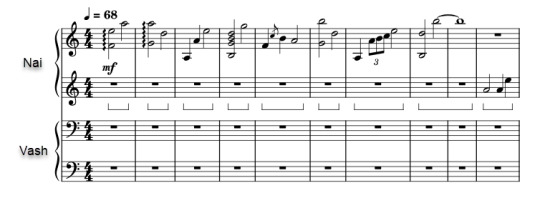
When Vash joins in on the bass clef staves, the tempo is more than doubled and we hear an "agitation" in Nai's lines. Vash is also a few octaves below Nai, miles away in pitch. Sound like their story?
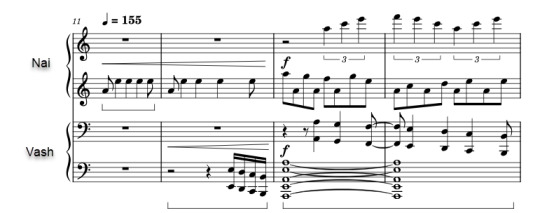
Looking at Vash's upper staff--while Nai is "on" the beat, Vash is off the beat (see highlighted figure). Their melodic lines are also ascending & descending away from each other in contrary motion. The rhythmic figures &melodic movement is causing the dissonance you hear.
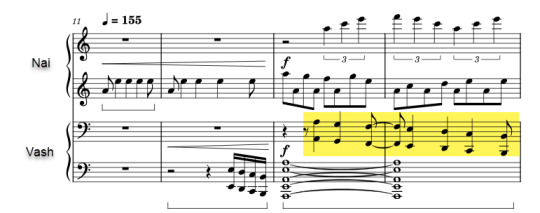
This continues throughout the piece, each of the brother's hands becoming their voices and ideals clashing. That auditory dissonance created in the music showcases their struggle. Nai's part is more frantic and urgent, whereas Vash is holding steady with the bass line chords.
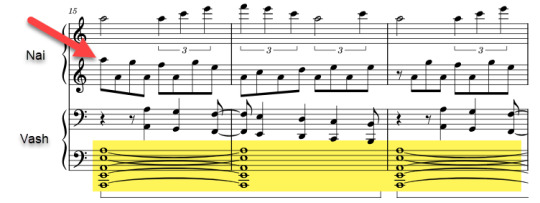
I like to think of Vash's sustained bass line as a motif to the steadfastness of his beliefs and ideals. Being true to himself.
"I'm Vash the Stampede."
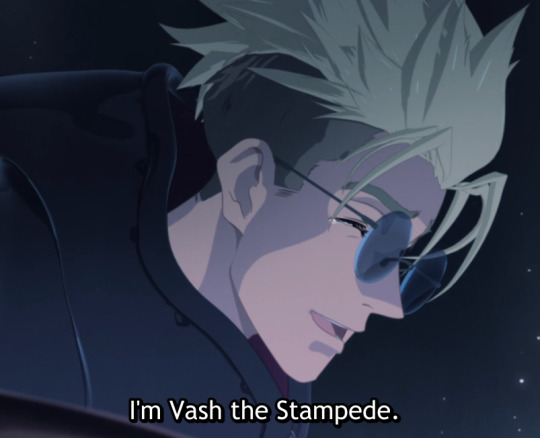
As the piece goes on, both right hands of the brothers swap the rhythmic dissonance. Nai now on the off beats and Vash on the beat. Nai's repetitive figure on the subdivided 8th notes holds that tension, while his left hand is having the argument with Vash's right hand.
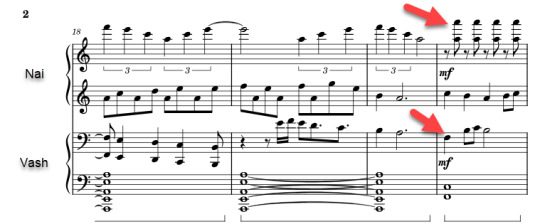
What's also interesting is that while sitting side-by-side for the duet, the hands closest to each other are the ones having the "conversation." There's a small parallel octave moment where they are as close as can be, physically & musically.
The outside hands are the dissonance.
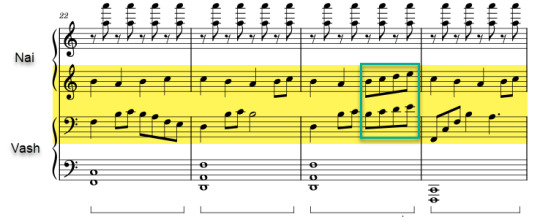
Something else to note on the swapping of beat placement--the twins are both changing the meter within the meter from common to duple with the figures & subdivision.
It all comes to a head with an accelerando & both brothers playing forte.
(Brahms Symphony No. 1 anyone?)
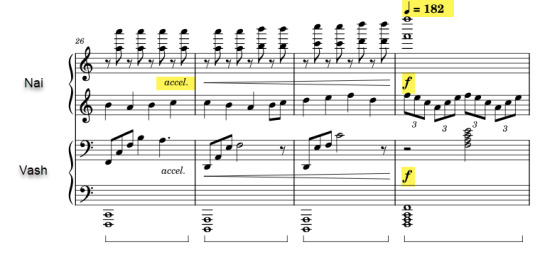
During the climax of the piece, Nai is reduced down to the triplet moving line. It's frantic and desperate. Like fear and running.
(Check out Shubert's "Erlkönig" to learn more about these types of motifs.)
Meanwhile, Vash is pounding out the bass line and the plant theme.

"Duet" comes to an abrupt end with no tonal resolution; ending on the dominant chord. The sudden ending is also breaking up the phrasing, leaving the listener jarred and expecting more. Unresolved. And that's truly where we're at with Trigun Stampede.
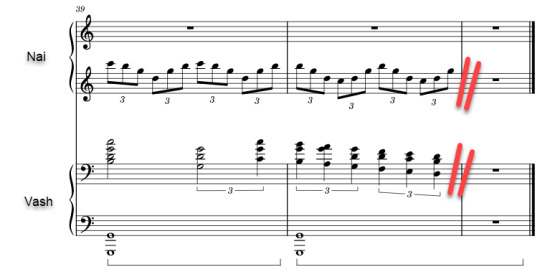
My interpretation of "Duet" is that it's much like a tone poem, telling the story of two brothers. Vash and Nai's story isn't finished, and I'm guessing that "Duet" is an unfinished piece as well.

My personal predictions is that, if Tatsuya Kato is the composer for Trigun Stargaze, we're going to hear "Duet" become a complete musical composition that resolves the story and conflict between two brothers.
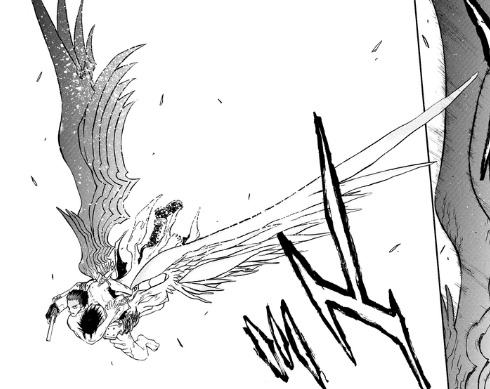
If you'd like to learn play "Duet" and analyze the score, here's a pretty good transcription on MuseScore:

#trigun#trigun stampede#trigun stargaze#vash the stampede#millions knives#yasuhiro nightow#tatsuya kato#trigun stampede ost#score analysis#trigun meta
90 notes
·
View notes